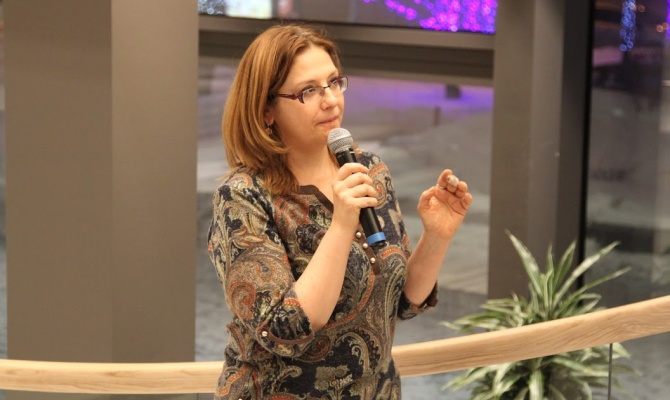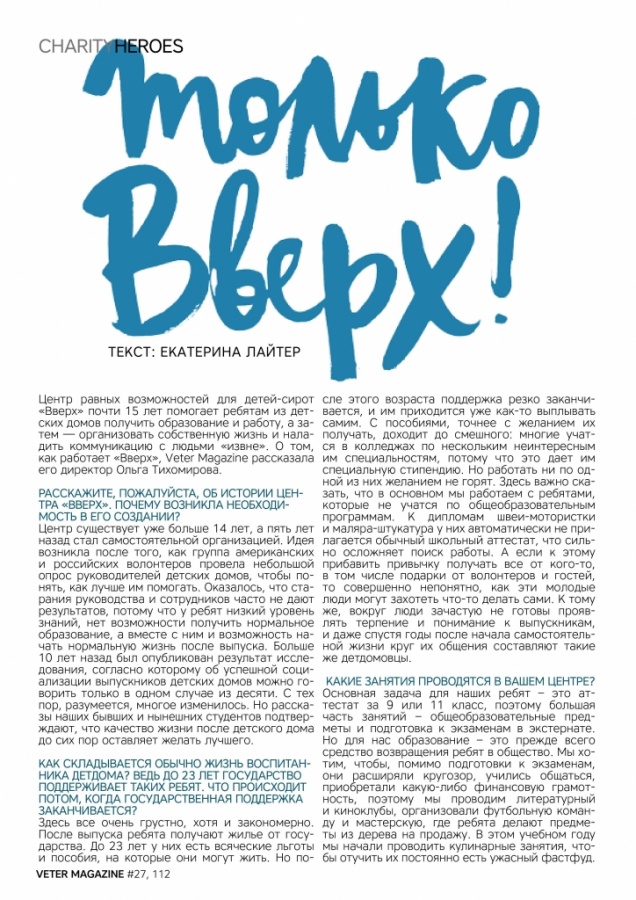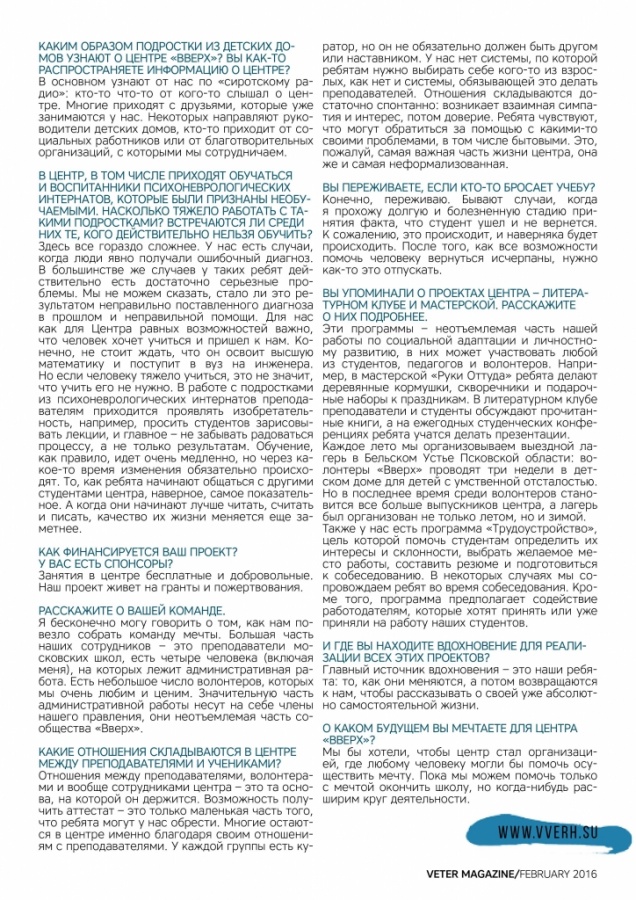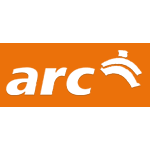Interview about the Step Up Centre in Veter magazine

In February’s edition of Veter Magazine, you will find an interview with the director of the Step Up Centre, Olga Tikhomirova.
She talks about where the idea to create the Centre came from and why, how we work and who we help, the problems our students face and the projects we come up with to help solve such problems to help students and graduates of correctional institutions.
Read the article on p112 of February’s edition of the magazine or below.
http://magazine.veterproject.ru/2016/february/
Only upwards!
By Ekaterina Laiter.
The Step Up Orphan Opportunity Centre has been helping orphanage students receive a good education and job for over 15 years. As a result, they can organise their own life and establish communications with people “on the outside”. The director of the Step Up Orphan Opportunity Centre, Olga Tikhomirova, spoke to Veter Magazine about how the Centre works.
SO TELL US ABOUT THE HISTORY OF THE STEP UP CENTRE. WHY WAS IT NECESSARY TO CREATE IT?
The Centre has existed for over 14 years already, and 5 years ago it became an independent organisation. The idea came about after a group of American and Russian volunteers held a survey for the directors of orphanages, in order to find out how to help them better. As it turned out, the hard work of staff and students does not always produce results because the students have such a low level of knowledge and no opportunity to have a normal life after leaving the orphanage. Over 10 years ago, research was published showing that only 1 in 10 orphanage graduates successfully adapt to society. It goes without saying that a lot has changed. But as our former and current students will tell you, there is still a desire to improve the quality of life after leaving the orphanage.
WHAT IS LIFE LIKE, GENERALLY, FOR THOSE LIVING IN AN ORPHANAGE? THE STATE SUPPORTS SUCH KIDS UNTIL THE AGE OF 23. WHAT HAPPENS AFTERWARDS, WHEN THEY ARE NO LONGER HELPED BY THE STATE?
Naturally, it is very sad. After leaving the orphanage, students receive housing from the state. Up to the age of 23 they also receive specific benefits to help them live more comfortably. But after that, support is suddenly cut off and they have to get by themselves. With benefits – rather, with a desire to receive benefits, it is an almost ridiculous situation: many can study at college and specialise in interesting fields, because they are given specific scholarships. But there is no desire to work in any of them. I should add, we work with students who don’t study in comprehensive schools. To become a seamstress for example, they are not automatically given a normal school certificate – this makes job searching even more complex. And if you add to this the fact that they receive all their knowledge for free from volunteers and guests, then it Is almost incomprehensible to think that these young individuals want to be independent. Besides, around them, people are often not ready to show patience and understanding towards graduates and even in the future, once they have embarked on their own independent life, their social circle is usually made up of people from orphanages.
WHAT ACTIVITIES DO YOU HOLD IN THE CENTRE?
The general aim for our students is to pass Year 9 and Year 11 exams, so most of our activities are based on comprehensive school subjects and preparation for exams. But for us, education is a way of making students aware of society. Alongside exam preparation we broaden students’ horizons, teach them how to converse, to have some sort of financial understanding. We hold literature and cinema clubs, we have a football team and organise woodwork masterclasses. This year we also began a culinary masterclass so that our students don’t keep eating fast food.
WHAT DO TEENAGERS FROM ORPHANAGES THINK ABOUT THE STEP UP CENTRE? DO YOU DISTRIBUTE INFORMATION ABOUT THE CENTRE?
Generally, we are considered to be “an orphan’s happiness” – that’s what someone heard about the Centre, anyway. Lots of people tell their friends to come to the Centre. Orphanage directors, social workers and other charity organisations that we work with urge some of them to come to the Centre.
STUDENTS FROM PSYCHONEUROLOGICAL INSTITUTIONS COME TO THE CENTRE TO LEARN, MANY OF WHOM HAVE NEVER RECEIVED ANY EDUCATION. HOW DIFFICULT IS IT TO WORK WITH SUCH YOUNGSTERS? HAVE YOU EVER COME ACROSS ANYONE WHO JUST CANNOT STUDY?
Of course, these cases are very complex. We have had cases where students had clearly received an incorrect diagnosis. In general, these students do have serious problems – but we can’t say that it was necessarily a result of the diagnosis or the succeeding incorrect help. For us, as an Equal Opportunity Centre, it is important that each student really wants to learn with us. Of course, it’s unrealistic to expect them to study Further Maths and then go on to study Engineering at university. But if a student finds learning difficult, that doesn’t mean they shouldn’t study. Working with teenagers from psychoneurological institutions, teachers can show their ingenuity. For example, asking students to draw in lessons. Of course, you need to enjoy the process – not just its results. Education is slow-moving but changes are always happening. The way that students begin to interact with other students in the Centre is the most revealing thing. And when they learn to read better, to count and write, their quality of life will change even more.
HOW ARE YOUR PROJECTS FINANCED? DO YOU HAVE SPONSORS?
All of our lessons are free and voluntary. Our projects are financed by grants and donations.
TELL US ABOUT YOUR TEAM.
I could go on about them forever – we are lucky enough to have the team of dreams. Most of our team are teachers from schools in Moscow, while 4 of us (myself included) take charge of the administrative side. We have a few volunteers who we love and value so much. Most of the administrative work is handled by the management- an integral part of the Step Up team.
WHAT ARE RELATIONS LIKE BETWEEN THE CENTRE’S TEACHERS AND STUDENTS?
Relationships between teachers, volunteers and other workers at the Centre are the reason why they remain here. The possibility of receiving a certificate is just a small part of why students come to us. Lots of them stay here simply because of their relationships with teachers. Each group has a curator but they are not obliged to become friends or mentors. We don’t have a system where each student has to choose an adult to model themselves on, just like we don’t have a system that binds our teachers. Relationships are formed quite spontaneously: mutual kindness and interest is created, and then trust. Students feel as though they can ask for help for any problems, even everyday problems. It is an important part of life in our Centre – and the least formal.
HOW DO YOU FEEL WHEN SOMEONE GIVES UP THEIR STUDIES?
Of course, I feel bad. There are long and tiring stages trying to find out why a student left and didn’t come back. Unfortunately, it happens and will continue to happen. Once you have exhausted all possible ways to help someone, you have to give up.
YOU MENTIONED SOME OF THE CENTRE’S PROJECTS – LITERATURE CLUB AND WORKSHOPS. TELL US MORE ABOUT THEM.
These programmes are an integral part of our work towards social adaptation and personal development. Any of our students can take part in them, as well as teachers and volunteers. For example, in our Hands from There workshop students make wooden birdhouses, feeding troughs and assembly kits for celebrations. In our Literature Club teachers and students discuss books they have read and at our annual student conference, students give presentations. Every year we organise a summer camp in Belsky Ustye: Step Up volunteers spend three weeks at an orphanage for students with special needs. But recently, more and more of our volunteers are graduates of the Centre and the camp hasn’t just been held in summer but in winter, too. We also have an employment programme, which aims to help students work out what they are interested in, to find jobs they would like to apply for, to write a CV and prepare for interviews. In some cases, we accompany students to interviews too. As well as this, the programme promotes employers that want to take on, or have already taken on, some of our students.
AND WHERE DO YOU FIND THE INSPIRATION TO MAKE THESE PROJECTS A REALITY?
The main source of inspiration is our students: when they dream of something, they turn to us to talk about the completely independent life they are striving for.
WHAT FUTURE DO YOU WANT FOR THE STEP UP ORPHAN OPPORTUNITY CENTRE?
We would like our Centre to become an organisation where anyone can come and make their dreams a reality. While we can currently only help them to finish school, at some point we would like to broaden our horizons.
www.vverh.su
Veter Magazine, February 2016.









